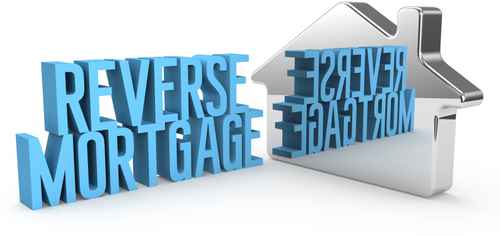Is retirement is just around the corner for you and you are planning all the wonderful things you can do with your free time, vacations, grandkids, hobbies, home improvements and travel? But even though you have paid off your mortgage, cash may be a little bit tight to do many of the things you want?

Then a reverse mortgage may be the ideal solution for you. Reverse mortgages, available in the USA, Australia, Hong Kong and Taiwan are a financial product that allows homeowners, or homeowners who have nearly paid off their original mortgage a way to release the equity in their home, while still living there. Each country has slightly different rules and regulations for Aviva equity release but all work in basically the same way.
Reverse mortgages are different from home equity loans. Home equity loans are like a second mortgage; you borrow a lump sum and then pay it back over a set period of time. Reverse mortgages are different, and designed for those struggling with living costs or high cost purchase items. With a reverse mortgage you can cash in’ part of the value of your house for a lump sum, a line of credit or regular monthly payments. You do not pay this pack, but it is far from free money.
How a reverse mortgage works
A reverse mortgage lender, will assess the value of your house and decide how much cash it is able to offer you. You decide how you want to receive this money, monthly, or a lump sump. You do not pay back the loan, but over time, as you receive the cash you own less and less of your home and the lender will own more of it.
What are the Costs Involved in a Reverse Mortgage?
Although there are no up front reverse mortgage interest rates there are significant costs involved in a reverse mortgages. Your reverse mortgage consultant will go through these carefully with you to ensure you understand what is involved. But in short, the costs include an origination fee, this is basically the lenders fee, appraisal fee, closing costs, interest and insurance.
Reverse Mortgage Interest Fees
Reverse mortgage interest fees can be a little complicated to understand, but basically you will not pay the fees to the lender monthly or yearly. But you will be charged them. The interest rates are added to the funds (cash) you have received, so in reality this added to your loan value, making your loan higher and reducing the value you have left in your home.
Reverse Mortgage Insurance Premium (MIP)
In the USA the Federal Housing Administration (FHA) under a program known as the Home Equity Conversion Mortgage, (HECM) insures most reverse mortgages.
This ensures that if the value of your house decreases, you or your family will not be liable for any deficit in the loan; the FHA will cover it.
Reverse Mortgage Pitfalls
In theory reverse mortgages sound like an ideal solution to anyone struggling to fund retirement, and they can be. However, you must make sure you continue to pay all the property taxes, and homeowner insurances. You must also continue to live in the property full time. If you fail to fulfil the terms of the reverse mortgage the lender can foreclose on you.
Do your Reverse Mortgage Research!
Reverse mortgages or home conversion loans, as they are sometimes called, are complicated creatures! However there is a huge amount of information online and reverse mortgage advisors are happy to answer your questions.
There are federal laws in place to protect homeowners from reverse mortgage scams and false information as the reverse mortgage market has been tightened up considerably in the last few years. If you do your research well, and understand all the implications of taking out a loan on your house you are set to have a wonderful retirement!